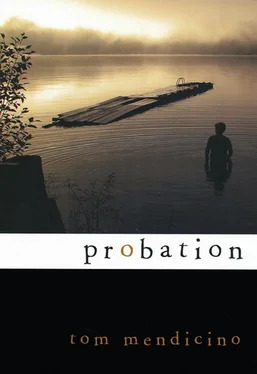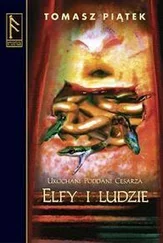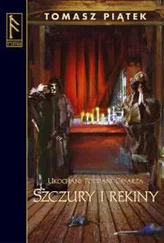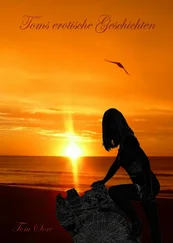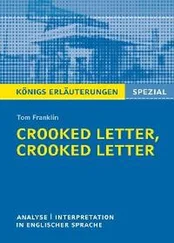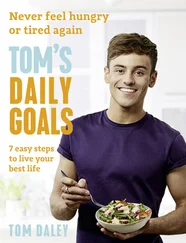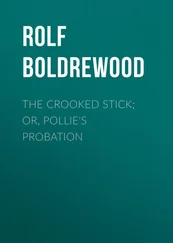I swerved to miss a rabbit. The car buckled, smearing the poor bunny across the asphalt.
My mother. I’d barely thought of her since I met him. Even when I was listening to her complaints, answering her questions, playacting at having a conversation, my thoughts were in a bed-sitter on a pull-out mattress under an itchy blanket. I loved him and he was trying to escape without confrontation, without any ugly scenes. Why should he bother with those? It wasn’t as if he loved me. I was a diversion, a release. The hospital was more important. So, of course, were his parents. His young and healthy parents who weren’t even dying. Me. I would snap to attention when wanted and keep at a safe distance when not.
I made the decision quickly and dialed his machine before I could change my mind. I knew how I wanted to sound. Sad, but not hurt. Fond, but not in love. Not paternal, but maybe a bit avuncular.
Hi. Look. I understand how you feel. You didn’t have to make up an excuse about having to work tonight. You could have just told me it’s over. It would have been all right. I’ll make this easy for you so you can enjoy your trip and not have to dread coming home to face me. I don’t want to see you anymore. You can call if you like. So I’ll talk to you if I talk to you.
I didn’t know how to end the message. I couldn’t find the right words to compel him to call. Words that would make him pick up the phone to tell me I had it all wrong. I checked my voice mail every hour for the next two days. It’s Friday night, almost a week later, and I’ve accepted he’ll never call. His silence means either his feelings for me were small and easily abandoned or deep enough to need protecting. I’ll never know. Someday I will see him at the bar. It will be awkward. Maybe we will speak. Maybe I’ll see him at the hospital during my mother’s next inevitable admission.
“I’m shaping up,” I swear to Matt. “No more missed appointments. I promise. My sales are good, better than good, great.”
“You look like hell,” he says. “Let’s try this,” Matt says, interrupting my patter to write me a script. “I’ve seen some good, relatively quick results with this medication.”
I’ve got a better idea. Let’s build a time machine and set the clock back ten, twelve, months ago. I don’t need drugs. I need another chance. An opportunity to do things right this time. The days are getting longer, but the sky is growing darker all the time. Look ahead. Nasty-looking clouds are hovering on the horizon. The forecast is calling for storms.
Smelling your mother’s farts feels uncomfortably close to incest. Disease does many ugly things, but this is the worst, this stripping away of dignity. She controls the things she can, observing the rituals, big and small, that mark her days. Sunday Mass at ten. Tuesday bridge nights. Friday mornings devoted to Forrest, who whips her new chemo wig into a facsimile of her old familiar hair. She accepts the things she can’t control, like flatulence and the other rude outbursts of a body in revolt. She and I have learned to ignore them. She doesn’t beg my pardon and I don’t crinkle my nose and crack the car window. We sit tight, waiting for the not-altogether-unpleasant smell to atomize and disappear.
It’s too cold to open the window anyway. Spring is in full bloom in the Piedmont, but winter still clings to these ancient hills. Columns of gray smoke rise from the bonfires of last season’s field debris burning in the valleys below. The towns on the distant ridges all look the same, a dozen or so low-pitched tar-paper roofs clustered around the steeple of a white wood-frame church. Most of these buildings are older than my mother. There’s no new construction in these hamlets. Their citizens are all dying off. Only the valiant still force a living out of the exhausted fields.
My mother, the youngest of ten, escaped over forty years ago after being orphaned at sixteen. My grandfather went first, losing a slow, ugly battle with colon cancer. My grandmother followed eight months later, quickly, from a heart attack, leaving my mother, only a high school girl, to keep house for the two bachelor sons who’d stayed behind to run the farm. The other boys had fled Watauga County for the machine shops of Johnson City and Knoxville; Buster, my mother’s favorite brother, made it all the way to occupied Japan, courtesy of the United States Army. Her sisters had left the farm when they’d married, following their husbands to Cleveland and Detroit, where union jobs in steel and construction paid good money. The house where she was born seemed strange, unwelcoming, after her parents died. She felt she was a burden on her brothers even though she washed their clothes and cooked their meals.
One Friday assembly during the fall of her junior year, the principal of her high school introduced a special guest from a brand-new factory up north. Mr. Yarnell, a gentleman in a black suit and heavy steel-frame glasses, had been dispatched to the backwaters to seduce the daughters of the harsh subsistence farms and dying towns of Appalachia with promises of adventure and excitement. The gray eyes behind the thick lenses saw the spark in my mother’s eyes as he described the lush truck farms of New Jersey, bursting with sweet corn and beans and especially tomatoes. Trucks and trucks of huge, red tomatoes so ripe they split at the seams. My mother jumped at the opportunity to enlist in the army he was recruiting to bottle and label the rivers of ketchup flooding the Garden State.
Her oldest brother resisted signing the consent forms. But the principal was a kind man who intervened and gently persuaded my uncles to allow her to follow her dream. He came to the bus station to see her off a week later. They corresponded until he died of lung cancer ten years later. His letters are tied together with a blue ribbon and kept in a box with her photo albums. His name was Andrew Miller and I am his namesake.
My uncle Buster, his wanderlust cured by two tours of duty in the Pacific, inherited the Calhoun homestead when his bachelor brothers died. He went to his grave ten years ago leaving my cousin Bobby to fight the noble fight. After Bobby’s gone, the farm most likely will be sold. His son JR spends his days staring at his computer screen, making contact with the world beyond this county, counting the days until, like my mother, he can escape.
We’re close now, almost there. The scrub brush, still gray and bare, grows right up to the edge of the county road, hiding the ancient fence of stacked railroad ties that stakes out Calhoun territory. I make a sharp left and the car crawls up the rutted path to the barn. I help my mother to her feet. It’s a long walk to the farmhouse and the stone path, worn smooth over the years, must be negotiated with care. The door to the barn is open. Inside, someone-my cousin Bobby most likely-is banging milk buckets and listening to the Power Country station on a portable radio. If he heard our car and our voices, and he must have, he is ignoring them.
My parents used the farm as a summer camp, sending me to Watauga County every July. The landmarks of my childhood are aging and precarious, but still extant. The barn, of course, never changes, reeking, as always, of damp straw and shit. I spent long afternoons as a kid shucking field corn in the mesh crib until blood blisters bubbled on my fingertips. The muddy pen, empty now, is where Uncle Buster performed a brutal autopsy on a sow that turned up dead one morning. The small slaughterhouse, garage to a new pickup truck these days, is where, laughing and drunk on beer, he pointed a fat kidney at us kids, threatening to squeeze piss in our faces. Ahead, closer to the house, is the chicken coop where I would trail my aunt as she gathered freshly laid eggs. But the old oak tree has lost the branch where the ruined tractor tire used to hang. I still have faint scars above my eyebrow and upper lip where its crusty bark tore up my face when I swung too high and lost control. Beyond the house are fields, and farther yet, the boarded-up entrance to a small, abandoned mine, the black hole in the earth where Bobby claimed to have killed a vampire bat, no, ten vampire bats as the story was embellished, that tried to suck the blood from his neck.
Читать дальше
